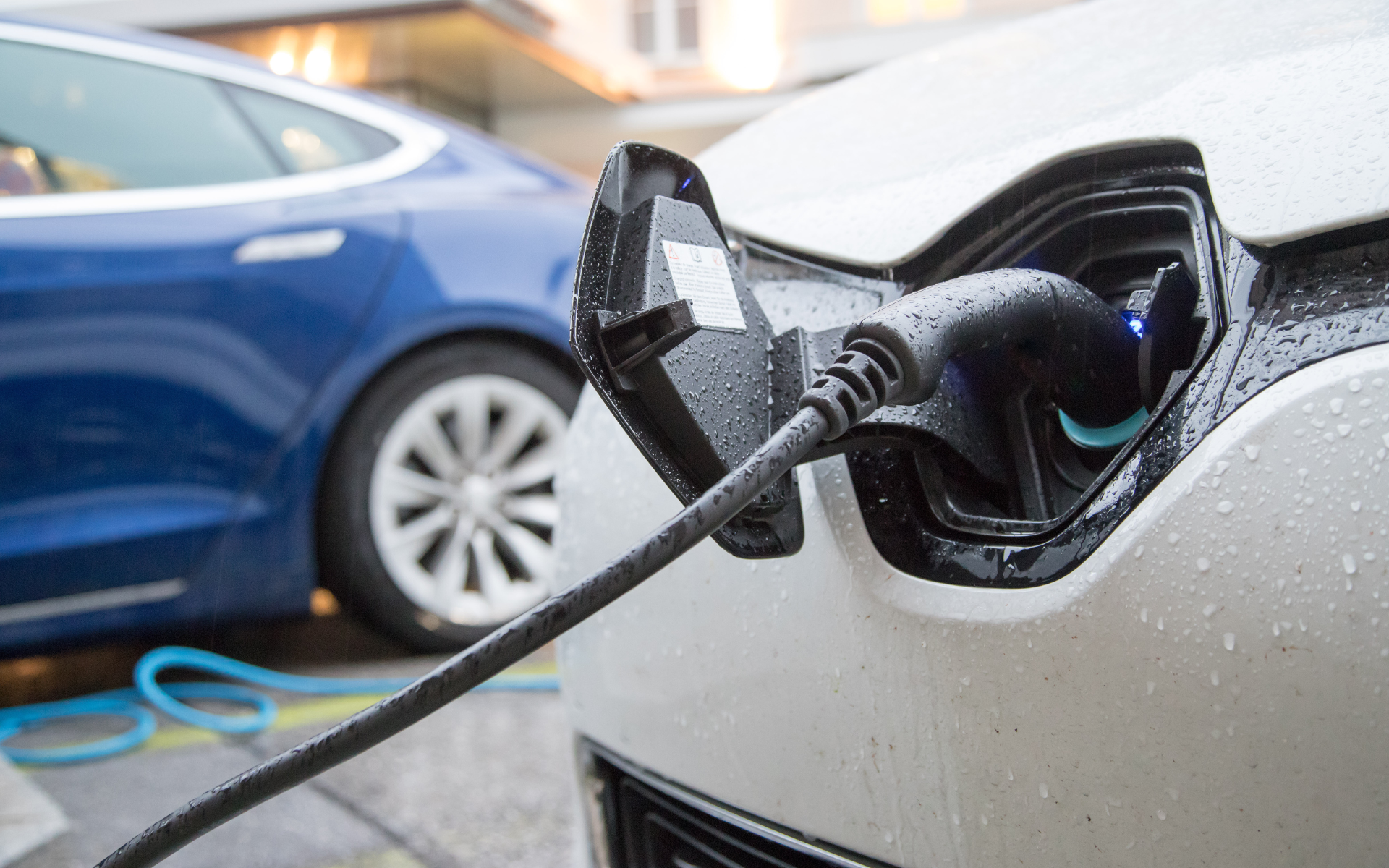Is It Safe to Charge an EV in the Rain?

3 Min. Read
It is common knowledge that water and electricity do not mix, however, advances in safety features have made it perfectly safe to charge your EV in bad weather.
Basic safety rules dictate that we avoid standing in water while touching or using any electricity, as the classic case of a hairdryer falling into the bathtub serves as a reminder of what can happen when water and electricity mix. Avoiding water and electricity is sound advice in nearly all situations, but this lesson in safety does not apply to plugging in and charging an EV in the rain thanks to the ingenuity of safety features added to EV chargers. EV drivers can be confident that contemporary auto manufacturers plan for inclement weather far beyond just installing sturdy windshield wipers.
The plug-in port used for attaching the cord to your car’s battery repels water when charging your EV. When attached, a watertight seal is created. This helps ensure a safe charge, even in harsh conditions.
EV charger features
Are you wondering, “So how can I charge my EV in the rain?” Rest assured, today’s electric car chargers are designed to be weatherproof, and they are specifically designed to protect the vehicle and people from electrical shock.
EV chargers:
- Do not let the current flow until you have plugged your vehicle in.
- Use a ground wire for safety.
- Are designed to be water- and weather-proof.
Even so, if you are installing a home charging station outside, look at the charger’s IP67 rating. This is particularly important in areas subject to strong wind, sandstorms, heavy rains, or other extreme conditions. Products with IP, or “Ingress Protection,” ratings meet international standards for shielding against dust and water. The first digit in the IP rating refers to its ability to protect against contact with solid things like dust and sand. The second IP rating digit refers to its ability to withstand water, whether immersed for a period of time or subjected to jets of water at heavy pressure, such as while washing your car.
EV chargers are carefully tested by OSHA-accredited laboratories. They must adhere to safety standards set by the Society of Automotive Engineers. EVs also meet Federal Motor Vehicle Safety Standards, as well as ones from the National Electric Code and the National Highway Traffic Safety Administration.
Other considerations
Indoor charging is the industry recommendation. After all, no one wants to go outside to connect their charger in a heavy snowstorm or torrential downpour. Beyond weather, an indoor installation also protects your charging station from damage from animals or people.
An outdoor charger setup in your home or workplace may be the better alternative due to access or spacing. If you do need to install the unit outside, you can purchase an enclosure to lock up and protect your outdoor charging equipment.
Proper installation is crucial to ensure safety
More importantly, always have experienced help when installing an EV charging station or updating your electric panel to ensure your charger, outlet, and complete setup are ready for any elements. Level 2 charging requires higher voltage outlets, such as the electric dryer hookups in your laundry room or garage. The outlet may need to be custom installed, and you may need to upgrade your panel to accommodate the new charging load.
Now that you have your EV or have decided to buy one—and have realized charging in the wild may not be a sufficient solution—you are probably looking at installing a home EV charger. Qmerit simplifies safe indoor and outdoor installations for EV drivers across the U.S. and Canada with our unsurpassed network of certified electricians specializing in EV charging technologies. You can get started today and receive upfront pricing and a custom quote offer by providing some information about your home, along with a few photos. Make the process easy, and the installation safe, by hiring qualified installers through Qmerit.
